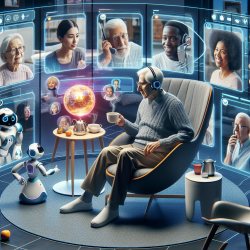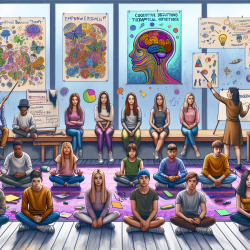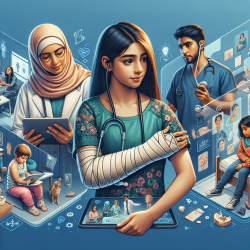Enhancing Online Therapy Skills with Smart Environments and Social Robots

Online therapy practitioners are constantly seeking innovative methods to improve the quality of care they provide. A recent study titled "Smart Environments and Social Robots for Age-Friendly Integrated Care Services" offers valuable insights into how technology can be harnessed to enhance therapy practices. Here, we explore key findings from the research and how they can be applied in online therapy settings.
Understanding Smart Environments and Social Robots
The study emphasizes the development of smart environments and social robots as pivotal in supporting the independent living of older adults. Smart environments integrate advanced technologies such as sensors, machine learning, and IoT devices to monitor and assist daily activities. Social robots, on the other hand, provide companionship and facilitate social interactions, significantly improving the emotional well-being of users.
Implementing Smart Environments in Online Therapy
Smart environments can be particularly beneficial in online therapy by providing continuous, real-time data on a client's daily activities and health status. Practitioners can leverage this data to tailor their therapeutic interventions more precisely. Key technologies include:
- Sensors: Wearable and ambient sensors can monitor physiological parameters, sleep patterns, and physical activities, providing a comprehensive view of a client's health.
- Machine Learning: Algorithms can analyze the collected data to detect anomalies and predict potential health issues, allowing for timely interventions.
- Remote Monitoring: IoT devices enable continuous monitoring, ensuring that clients receive support even outside of scheduled therapy sessions.
Integrating Social Robots in Therapy
Social robots offer a unique way to enhance client engagement and support. They can be programmed to provide reminders, facilitate exercises, and even conduct therapy sessions. Here are some practical applications:
- Companionship: Social robots can reduce feelings of loneliness and isolation, especially in older adults, by providing interactive companionship.
- Activity Reminders: Robots can remind clients to take medication, perform exercises, or follow specific therapeutic routines.
- Emotional Support: By engaging in conversations and activities, social robots can help improve the emotional well-being of clients.
Encouraging Further Research
While the integration of smart environments and social robots shows promise, further research is necessary to optimize their use in therapy. Practitioners are encouraged to explore these technologies and consider their potential applications in their practice. Continuous learning and adaptation will be key to leveraging these innovations effectively.To read the original research paper, please follow this link:
Smart Environments and Social Robots for Age-Friendly Integrated Care Services.
Citation: Anghel, I., Cioara, T., Moldovan, D., Antal, M., Pop, C. D., Salomie, I., & Chifu, V. R. (2020). Smart Environments and Social Robots for Age-Friendly Integrated Care Services. International Journal of Environmental Research and Public Health, 17(11), 3801. https://doi.org/10.3390/ijerph17113801










